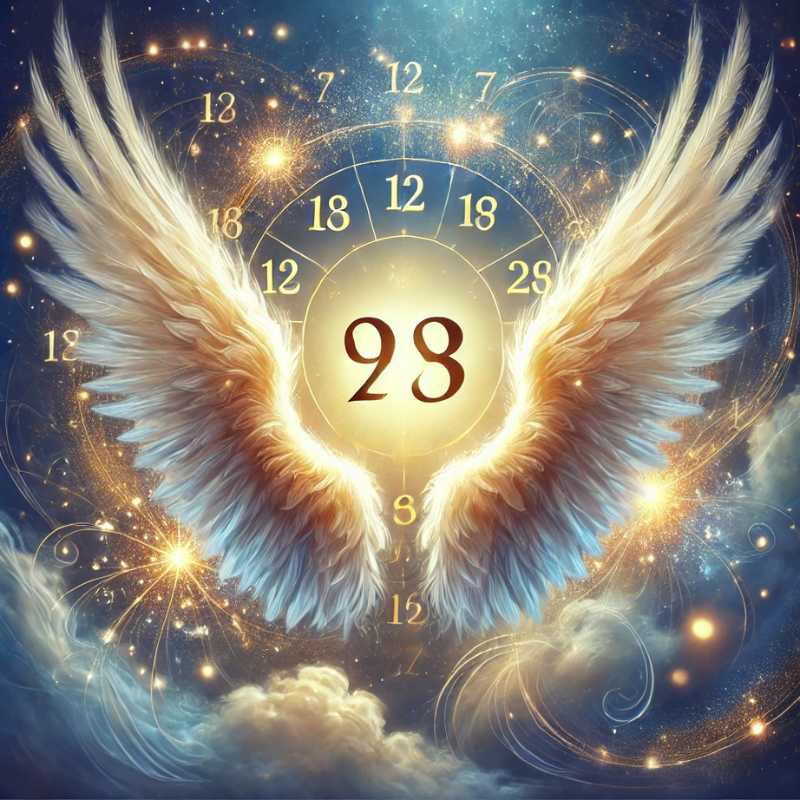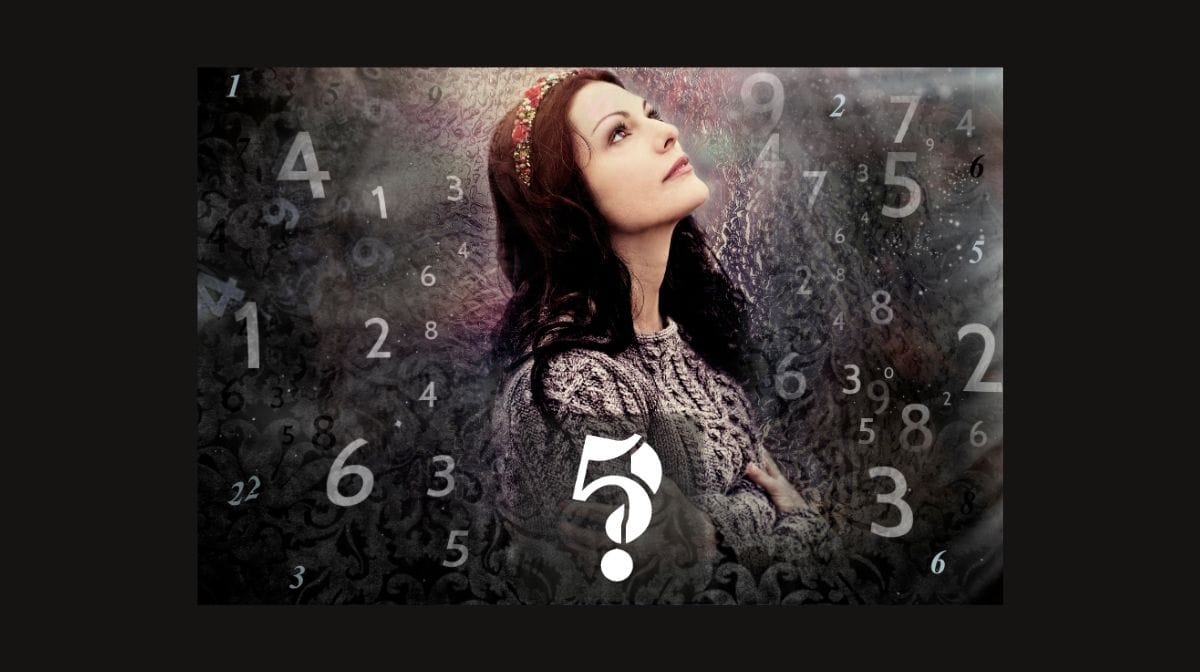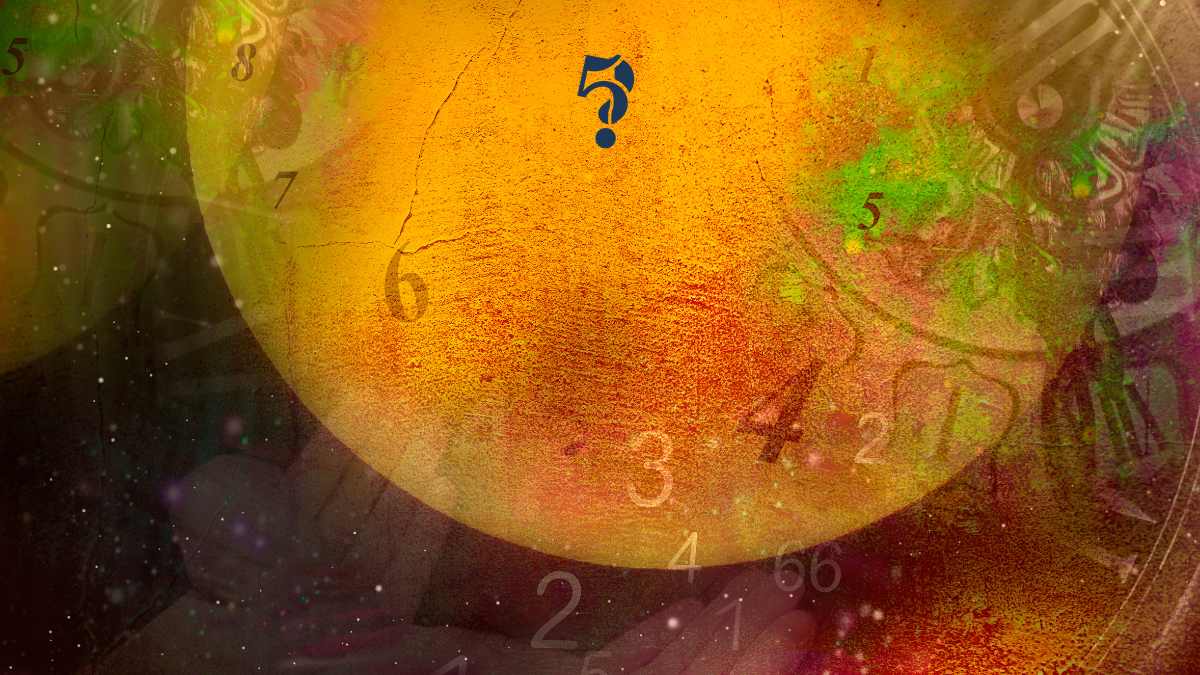What is numerology?
Numerology is the study of how numbers influence our lives, revealing insights into our personalities, relationships, and destinies. From ancient roots to modern interpretations, numerology helps us understand our purpose and achieve harmony.
Numerology is more than just the study of numbers; it is a profound exploration of how numbers influence our lives and reveal deeper truths about our personalities, relationships, and destinies. It offers us insights into the underlying patterns of the universe and shows us how to align our lives with these cosmic forces. Whether you are looking for guidance, self-discovery, or simply curious about the power of numbers, this article will walk you through the fascinating journey of numerology—its history, fundamental principles, and the diverse systems practiced worldwide. Numerology can provide a way to make sense of life's mysteries, giving us a deeper understanding of our purpose and how to achieve a more harmonious existence.
The History and Origins of Numerology
The roots of numerology stretch back thousands of years, and its origins can be found in several ancient civilizations, each contributing uniquely to this mystical study. Understanding these diverse origins can help us appreciate how numerology has evolved into a complex system of wisdom and guidance.
Ancient Beginnings
- Babylon and Mesopotamia: The earliest records of numerology are found in ancient Babylon, one of the oldest civilizations known to study numerical symbolism. Babylonian priests used numbers to predict cosmic events, believing that celestial bodies and their positions had a direct influence on the physical world. Mesopotamians were among the pioneers of using numerical patterns for divination, treating numbers as sacred. They believed that numbers could explain the forces that shaped the world and unlock the mysteries of fate.
- Egypt: In Egypt, numbers held an important place in spiritual practices and architectural design. The pyramids, some of the most iconic symbols of ancient civilization, are not just marvels of engineering but also representations of numerical and geometric precision. Egyptians believed that numbers carried divine meaning and could help guide the soul in the afterlife. Numbers such as 3, 4, and 7 were especially significant, representing elements like harmony, stability, and spirituality. Egyptian priests often used numerology for interpreting the will of the gods and to provide spiritual guidance to the pharaohs.
The Greek Influence: Pythagoras and His Legacy
One of the most significant influences in the history of numerology came from the Greek philosopher Pythagoras (570–495 BCE). Pythagoras, often referred to as the "father of numerology," believed that numbers are the essence of the universe. His philosophy was that everything could be explained and understood through numerical relationships. He established the idea that numbers have specific energetic properties that affect both physical and metaphysical worlds.
- Pythagorean Teachings: Pythagoras taught that numbers from 1 to 9 carry distinct vibrations and characteristics. He even linked these numbers to music and celestial bodies, suggesting that the harmony of the universe was a result of these numerical relationships. The famous Pythagorean theorem was just one aspect of his broader belief in the power of numbers to unlock universal truths.
- Historical Impact: His influence extended far beyond mathematics; Leonardo da Vinci and other Renaissance thinkers drew inspiration from Pythagoras's teachings, incorporating his ideas into their art, science, and philosophies. To them, numbers represented the hidden order of the universe. The legacy of Pythagoras helped lay the groundwork for later mystical and occult traditions, which continued to develop numerology as a spiritual practice.
The Spread and Evolution of Numerology
As numerology spread throughout the world, it took on different forms, adapting to cultural and spiritual contexts:
- Chaldean Numerology evolved from Mesopotamia and emphasized a mystical, intuitive approach, focusing on the vibrational quality of each number and its relationship to the spiritual realm. This system is known for its depth and spiritual accuracy, often used to understand one's hidden potential and destiny.
- Indian Numerology became closely linked to Vedic astrology, integrating numerical analysis with planetary influences and spiritual growth. This tradition emphasizes karma and reincarnation, using numbers to understand life lessons and spiritual evolution.
- Chinese Numerology linked numbers to Feng Shui principles, emphasizing harmony and balance in all aspects of life. The Chinese believed that numbers could be used to enhance prosperity, health, and happiness by aligning with the natural flow of energy.
Fundamental Principles of Numerology
At its core, numerology is the belief that numbers are more than just symbols used for counting; they are carriers of profound energy that shapes our reality. Let's explore some of the fundamental principles of numerology:
The Power of Core Numbers
Numerology revolves around several key numbers derived from an individual’s name and birthdate. These numbers are believed to influence a person’s personality, life path, and challenges:
- Life Path Number: Calculated using your birthdate, this number reveals your core purpose and main challenges in life. For example, a Life Path Number 1 signifies leadership and ambition, whereas a 7 suggests a life of introspection and spiritual quest. The Life Path Number is often considered the most important number in numerology because it provides insights into your life's journey and your deepest motivations.
- Expression Number: Also called the "Destiny Number," it is derived from the full name given at birth. It provides insight into your talents, strengths, and weaknesses. The Expression Number represents your natural abilities and the potential paths available to you throughout life.
- Soul Urge Number: This number is based on the vowels in your name and reflects your inner desires and motivations—the things that make your soul truly happy. Understanding your Soul Urge Number can help you connect with your true passions and understand what drives you on a deeper level.
The Symbolism of Numbers
In numerology, each number carries unique symbolism and vibrational energy:
- 1 represents beginnings, individuality, and drive. It is the number of pioneers and innovators, reflecting a strong will and determination to forge new paths.
- 3 symbolizes creativity, communication, and expansion. It embodies the principle of growth and the joy of sharing ideas and expression.
- 8 is often associated with abundance, success, and material mastery. It also symbolizes balance and the cycles of gain and loss, as it resembles the symbol for infinity.
These symbolic meanings help numerologists interpret how the energy of numbers impacts people’s lives and guides them on their journey. By understanding the symbolism, individuals can gain insight into their strengths, challenges, and opportunities.
Nikola Tesla and Numerology: The Fascination with 3, 6, and 9
When we think of Nikola Tesla, we often imagine one of the greatest inventors and visionaries of all time, a man whose contributions to electrical engineering and modern technology are incalculable. Yet, what many people don't know is that Tesla had an extraordinary fascination with numbers, particularly with the numbers 3, 6, and 9. This fascination was so strong that it influenced many aspects of his life, his habits, and perhaps even his approach to understanding the universe. But what exactly was behind Tesla's interest in these numbers? Did it connect in any way to the practices of numerology?
First, it is important to understand that there is no direct evidence to suggest that Nikola Tesla followed a formal system of numerology, such as the Chaldean or Pythagorean traditions. Instead, Tesla seemed to have developed his own unique way of thinking about numbers, one that was deeply personal and spiritual. He believed that numbers held the key to unlocking universal secrets, and among them, 3, 6, and 9 were particularly powerful. Tesla once stated that "If you only knew the magnificence of the 3, 6, and 9, then you would have the key to the universe." While this statement may sound esoteric, it reveals his belief that these numbers had a unique resonance and importance.
Tesla's obsession with the number 3 extended into his everyday life. He often engaged in ritualistic behaviors involving the number, such as walking around a building three times before entering it or insisting on staying in rooms that had a number divisible by three. To Tesla, this wasn't just a quirky habit—it was his way of aligning himself with the fundamental forces of the universe. He seemed to feel that 3, 6, and 9 were not merely mathematical values but fundamental components of an unseen reality, vibrating at a frequency that was significant beyond our immediate perception.
In many ways, Tesla's beliefs align with some numerological principles, even though he may not have formally practiced numerology. Numerology, at its core, is the study of the mystical significance of numbers and their influence on our lives. It holds that numbers carry vibrational meanings and can offer insights into our personalities, paths, and destinies. Tesla's insistence on the significance of numbers can certainly be seen as a form of numerological thinking—even if he didn't explicitly connect his ideas to established numerological systems.
Tesla's interest in the numbers 3, 6, and 9 may also have roots in his deep understanding of mathematics, geometry, and the natural order. He was a believer in the interconnectedness of all things and felt that numbers were one way to express this universal harmony. For instance, the numbers 3, 6, and 9 are all related to the concept of energy, frequency, and vibration—three concepts that Tesla frequently mentioned as the fundamental building blocks of reality. If we think about the significance of these numbers, they appear repeatedly throughout nature and science. Triangles, with three sides, are among the most fundamental shapes in geometry. Hexagons, with six sides, form the basis of honeycombs and countless natural structures. The number 9 has unique mathematical properties that make it mysterious and captivating to mathematicians and mystics alike.
In numerology, the number 3 often symbolizes creativity, communication, and growth. It is believed to represent a certain completeness and expression, aligning with how Tesla saw the power of three in the natural world. The number 6 is often seen as a symbol of balance, harmony, and nurturing—qualities that also resonate with Tesla's vision of creating technologies to improve humanity's well-being. The number 9, often considered the number of completion and enlightenment, could symbolize Tesla's desire to push the boundaries of human understanding and achieve breakthroughs that seemed almost mystical in nature.
Whether or not Tesla formally practiced numerology, it is undeniable that he attributed profound importance to numbers and their potential to reveal truths about our universe. His fascination with 3, 6, and 9 reflects a type of numerological worldview—one that sees patterns, energy, and meaning woven into the very fabric of reality. This kind of thinking resonates deeply with those who are drawn to numerology today, as it underscores the belief that numbers are not just tools for measurement, but carriers of deep truths that connect all aspects of existence.
For those interested in numerology, Tesla's theories can serve as an inspiration. They remind us that numbers have a power beyond their practical applications in science and technology—they hold symbolic meaning and have the potential to help us understand the hidden forces that shape our lives. Tesla's unique take on numbers 3, 6, and 9 invites us to explore how these numerical symbols might relate to our own experiences and to see the interconnectedness of all things through the lens of numerology.
As we delve deeper into the mysteries of numerology, it's worth considering how Tesla's perspective might fit into the larger framework of number symbolism. His insights inspire a different approach to numerology—one that merges scientific thought with spiritual curiosity, a blend that speaks to the holistic understanding of the universe as a place where numbers, energy, and consciousness are all interconnected. Whether it's the 3 representing the creative spark, the 6 symbolizing harmony, or the 9 as a beacon of enlightenment, these numbers continue to fascinate those who look beyond the surface for deeper meaning.
In conclusion, while Nikola Tesla may not have formally practiced numerology, his fascination with the numbers 3, 6, and 9 reveals a profoundly numerological way of thinking about the world. His life and work demonstrate that numbers can be more than abstract concepts—they can be keys to understanding the deepest mysteries of our universe. For those who study numerology today, Tesla's insights provide a powerful reminder of the magic that can be found in the seemingly simple world of numbers.
Pythagorean Numerology
The Pythagorean system is the most popular and widely practiced form of numerology today. It simplifies all numbers into single digits (1 through 9), which makes interpreting their meanings straightforward.
Key Concepts
- Single-Digit Analysis: Each single-digit number is thought to embody specific qualities:
- 1: Leadership, initiative, assertiveness.
- 5: Freedom, adventure, and adaptability. This number encourages embracing change and exploring new possibilities.
- 9: Compassion, humanitarianism, completion. It represents the culmination of experiences and the desire to give back to humanity.
- Historical Context: Pythagoras believed that numbers were at the core of all things. His disciples followed his teachings and viewed numbers as sacred keys to unlocking cosmic mysteries. Figures like Leonardo da Vinci later integrated these teachings into their work, believing numbers to be the language of creation. The influence of Pythagorean numerology is evident in fields as diverse as architecture, music, and spirituality.
How to Use Pythagorean Numerology
To calculate your Life Path Number using Pythagorean numerology, add together all the digits of your birth date until you get a single digit. For instance:
- July 21, 1990 ⇒ 7 + 2 + 1 + 1 + 9 + 9 + 0 = 29 ⇒ 2 + 9 = 11 ⇒ 1 + 1 = 2.
A Life Path Number 2 suggests cooperation, diplomacy, and a quest for balance in life. Individuals with this number often excel in partnerships and have a deep sense of empathy, making them excellent mediators.

Chaldean Numerology
Chaldean numerology is one of the oldest and most mystical forms of numerology. It is less known than the Pythagorean system, but is highly respected for its depth and accuracy.
Key Concepts
- Numerical Values Based on Vibration: Unlike the Pythagorean system, the Chaldean system assigns numerical values to letters based on their vibrational frequencies rather than sequential order. This gives a more intuitive and spiritually guided perspective on numbers.
- Numbers from 1 to 8: In Chaldean numerology, numbers are generally reduced to values from 1 to 8, with 9 often being considered sacred or too powerful to be used in most calculations. The number 9 is believed to represent divine completeness and is reserved for more significant spiritual interpretations.
Historical Context
- Mesopotamian Mystics: Chaldean numerology was practiced by ancient Mesopotamian mystics who believed in the connection between the divine and numerical values. Historical figures such as King Nabucodolnosor are believed to have consulted Chaldean numerologists to gain insight into political decisions and to ensure their reign was divinely aligned. The mystical nature of Chaldean numerology made it a tool for kings and spiritual leaders alike, seeking to align with the cosmic will.
Practical Application
The Chaldean system is used to determine an individual’s Soul Number, which reveals hidden aspects of one's personality and spiritual path. This approach places great emphasis on intuition, aligning a person's energy with cosmic vibrations. Chaldean numerology is often used to gain insights into one’s true nature and to uncover secrets about one’s destiny that may not be apparent in the physical realm.
Chinese Numerology
Chinese numerology is deeply embedded in Chinese culture, and it reflects a belief in the importance of balance, harmony, and energy flow in all aspects of life.
Key Concepts
- Numerical Symbolism in Daily Life: Numbers in Chinese culture are considered auspicious or inauspicious based on their pronunciation. For instance:
- 8 (八, "ba") sounds like "prosperity" and is considered extremely lucky. This number is highly sought after, especially in business and personal decisions, due to its promise of wealth and success.
- 4 (四, "si") sounds like "death" and is often avoided. The number 4 is typically considered unlucky, and it is common to find buildings in China without a fourth floor.
Historical Context
- Ancient Chinese Emperors: Chinese emperors often consulted numerologists to select auspicious dates for significant events such as coronations or battles. The 2008 Beijing Olympics, for example, commenced on 08/08/08 at 8:08 PM, capitalizing on the number 8’s promise of prosperity and success. Numerology played a critical role in major state decisions, reflecting the belief that alignment with the right numbers could bring fortune and power.
Practical Uses
- Feng Shui Integration: Chinese numerology is often used in tandem with Feng Shui to create harmonious environments. By aligning numbers with the correct spatial energy, individuals can attract wealth, health, and positive relationships into their lives. For example, placing objects in groups of eight is considered a powerful way to attract prosperity, while avoiding sets of four can prevent negative energy.
Indian Numerology
Indian numerology is deeply connected with Vedic astrology, linking numbers with planetary influences and focusing on the spiritual aspect of life.
Key Concepts
- Numbers and Planets: Each number in Indian numerology is ruled by a specific planet, which influences its characteristics:
- 1 (Sun): Represents leadership, self-reliance, and creativity. People with this number often possess strong willpower and charisma.
- 5 (Mercury): Linked to communication, adaptability, and intellect. Those influenced by Mercury are versatile and thrive in social interactions.
Historical Context
- Mahatma Gandhi: Historical figures like Mahatma Gandhi are believed to have used numerology to make important decisions, including the timing of events crucial to India’s independence movement. Gandhi’s alignment with his numerological insights is said to have helped shape his spiritual mission and influence his approach to leadership.
Practical Application
Indian numerology places emphasis on karmic numbers, which reveal the lessons and spiritual growth a person is meant to experience in this lifetime. Understanding these karmic influences helps align with one's higher purpose. Indian numerology also uses Name Numbers to evaluate how one’s identity interacts with their environment and destiny, often advising changes in names for better alignment with planetary energies.
Angelic Numerology
Angelic numerology is a more recent development within the field of numerology, focusing on repeated sequences of numbers as divine messages from angels or spiritual beings.
Key Concepts
- Angel Numbers: Repeated numbers like 111, 222, and 444 are seen as messages from guardian angels. These numbers are thought to guide individuals on their path and provide reassurance during challenging times.
- 111: Indicates alignment with your true purpose and a time to focus on positive thoughts. It’s often viewed as a sign of new beginnings and spiritual awakening.
- 444: Suggests protection, support, and a reminder that you are on the right path. Seeing 444 frequently can be a comforting sign that your efforts are being supported by higher forces.

Practical Application
When you repeatedly see specific numbers, it is believed to be a sign that your angels are trying to communicate with you. These messages often offer comfort, encouragement, or guidance regarding important decisions. Paying attention to these synchronicities can help individuals make decisions that align more closely with their spiritual journey and personal growth.
How Numerology Speaks Through Numbers, Symbols, and Metaphors
Numerology is not just about calculations—it is a symbolic language that communicates through numbers, metaphors, and archetypes.
Numbers as Universal Energies
In numerology, each number holds a specific vibrational energy that embodies certain qualities. For instance:
- 1 symbolizes new beginnings, leadership, and independence. It is the number that embodies the essence of self-reliance and confidence, urging individuals to take charge.
- 7 reflects introspection, wisdom, and spiritual awakening. It is often considered a sacred number, representing a deeper quest for truth and the mysteries of life.
These numbers serve as metaphors, helping us interpret and understand the deeper meanings behind life events, relationships, and challenges. Each number is a tool that provides insight into our paths and the energies that influence our actions and emotions.
Symbols Embedded in Numbers
Each number is part of a symbolic framework that mirrors universal truths:
- 3 represents creation and the union of mind, body, and spirit. It symbolizes the dynamic process of growth and expansion, often associated with creativity and self-expression.
- 8 symbolizes infinity and the balance between the material and spiritual realms. It is often seen as a sign of power and manifestation, indicating the cyclical nature of energy and the balance between giving and receiving.
Metaphorical Connections to Life Events
The power of numerology lies in its ability to use metaphors to connect numbers to experiences. For example:
- Seeing repeated numbers like 111 could symbolize alignment with your higher purpose. It encourages individuals to focus on their thoughts and intentions, as they are in a state of manifestation.
- 222 might represent the need for balance or signify a partnership in your life. It often comes as a gentle reminder to maintain harmony and to trust the process of life unfolding.
By recognizing these patterns and synchronicities, numerology helps individuals understand where they are in their life journey and what actions they need to take to align with their desired path. The metaphors embedded in numbers provide a unique way to reflect on personal growth and to find meaning in everyday experiences.


